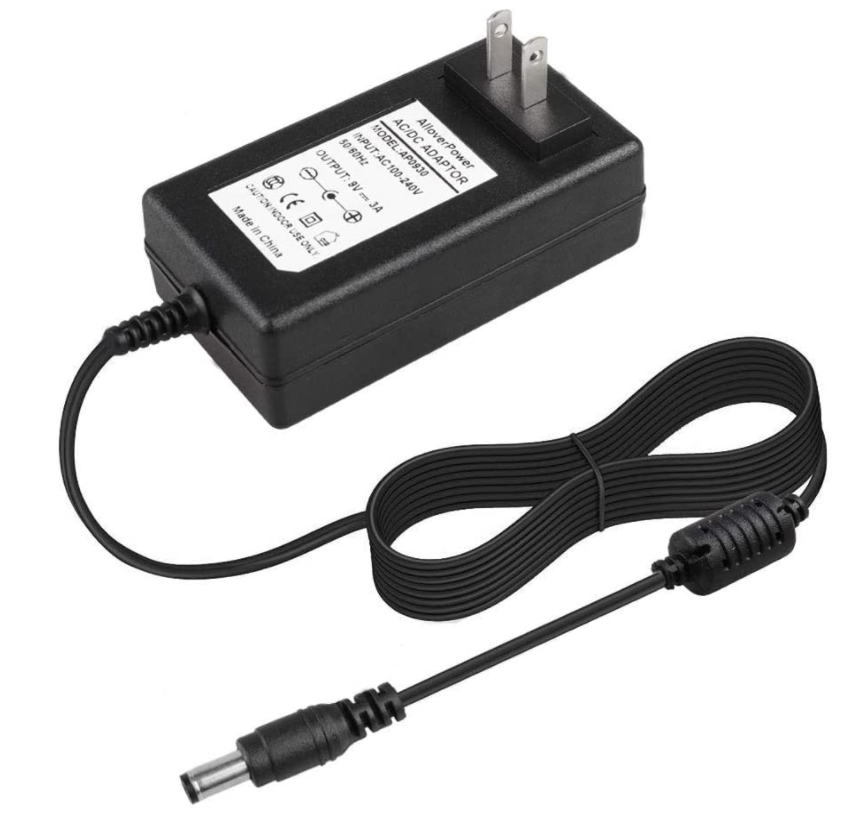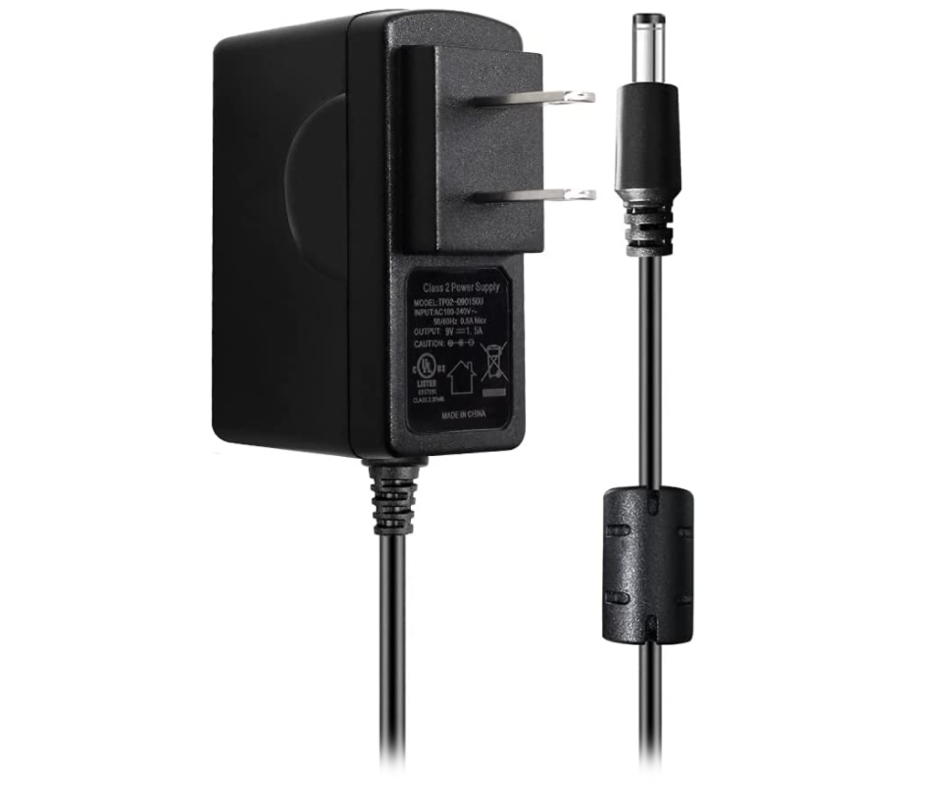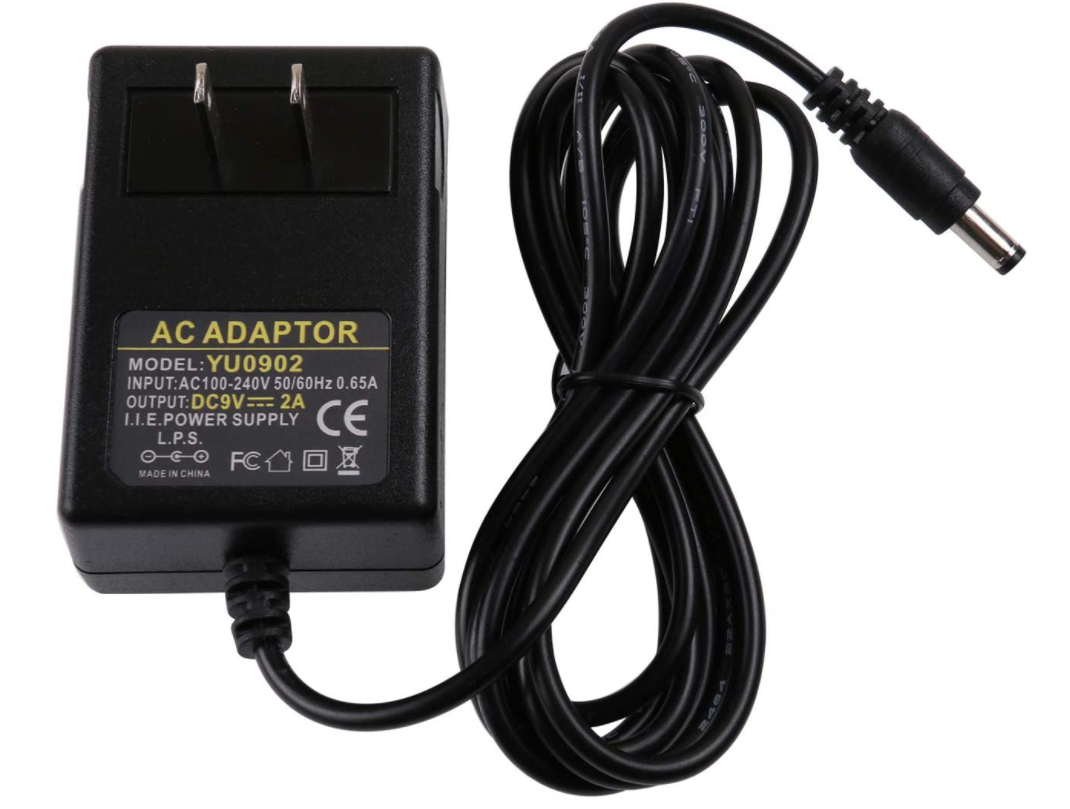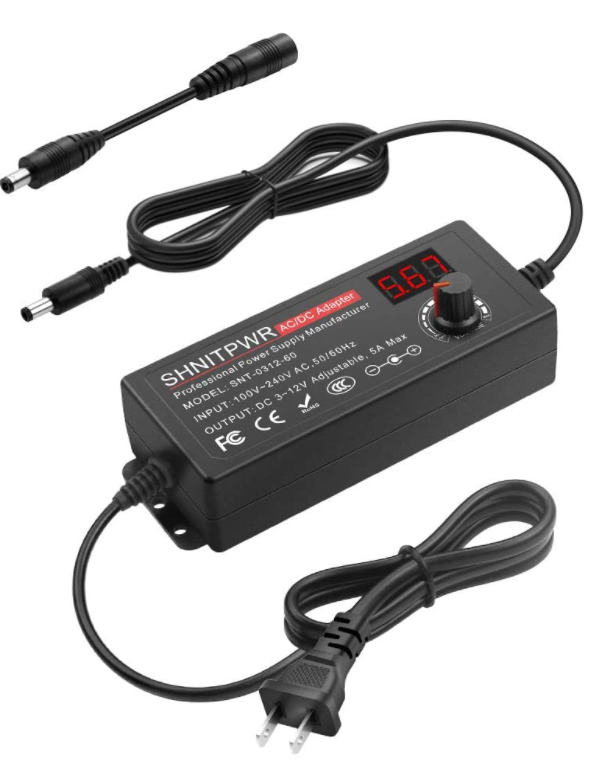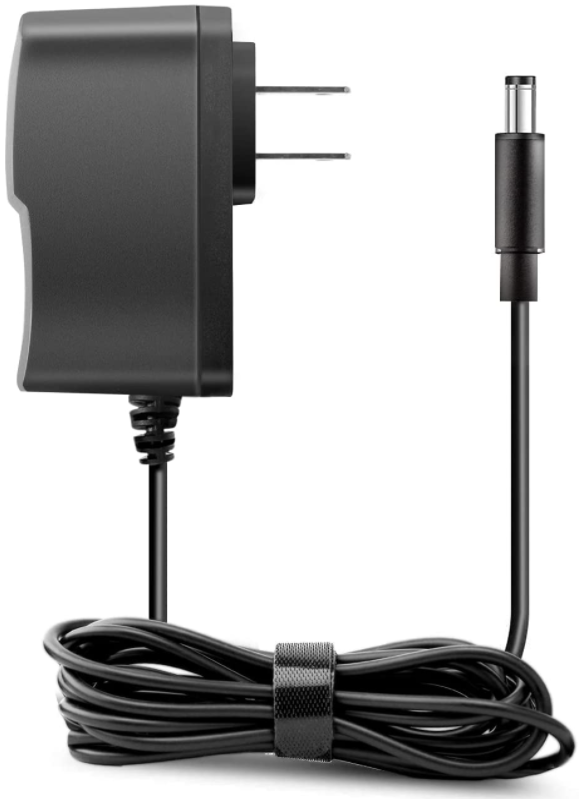AlloverPower adaptor for Arduino boards
This power adaptor gives the output voltage of 9 volts and the output current of 3 amperes and puts out 27 W of power. This power supply is compatible with Arduino Uno R3 and for Arduino Mega256. Further it comes with over current and over voltage protection as well as protection for the short circuit. This product can also work at high temperatures.
TKDY Power Supply for Arduino boards
This AC to DC adapter gives 1.5 amperes of current with the output voltage of 9 volts and produces a power of 13.5 watts. This adapter is recommended for the Arduino Uno and Arduino Mega boards as this power supply comes with four types of protection. These include protection from overcurrent , protection from overvoltage, protection from high temperature and protection from short circuits. Similarly, these protection features will prevent any damage to the Arduino boards as well as the devices connected with Arduino.
LeToXing Power Supply for Arduino Boards
This power supply is suitable for the boards which require not more than 9 volts and current not more than 2 amperes. This supply produces a power of 18 watts and comes with the over voltage and over current protection. This adapter is suitable for the Arduino Uno, Arduino Mega and Arduino Elegoo kit.
SHNITPWR variable power supply for Arduino Boards
This power supply can generate voltages ranging from 3 volts to 12 volts and can produce maximum power of 60 watts. This power supply can produce maximum current of 5 amperes and operates on the AC voltage ranging from 100 to 240 volts. To change the value of the voltage a knob is provided, and this supply also has a small display that shows the voltage values. This external power supply has 6 safety features that will protect Arduino boards and those features are: overcurrent protection, over voltage protection, thermal protection, short circuit protection and electromagnetic wave protection.
FlickerStar power supply for Arduino boards
When the voltage not more than 6 volts is required by the Arduino board the Flicker Star power adapter is the viable option as it produces the power of 9 watts and current of 1 ampere. This adapter operates at the AC voltage in the range of 100 to 240 volts on 50 and 60 Hz frequency. Similarly, this power supply is recommended for the Arduino Uno, Arduino Mega and Arduino Elegoo kit.
Conclusion
External power supplies can become handy if you want to use Arduino in standalone mode. In standalone mode you can either use batteries or power supplies to power up the Arduino. So, this write-up recommends the best five options for using the power supply for Arduino boards. From the above recommendations it can be suggested that SHNITPWR variable power supply is the best viable option because it can be tuned to any desired voltage for the Arduino boards.

